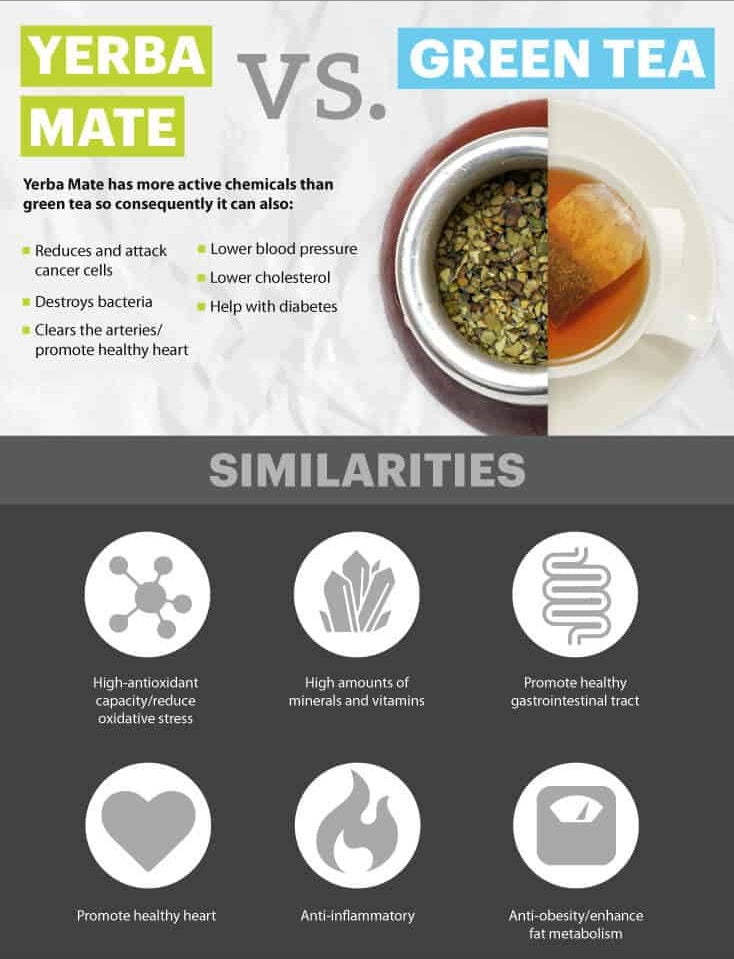
Yerba Mate vs. Green Tea
Share
Green tea comes from the leaves and buds of the Camellia sinensis tree, which grows in some Asian countries. Yerba Mate, on the other hand, is prepared with the leaves of the Ilex Paraguariensis plant, which only grows in a few countries of South America.
Yerba Mate flavors can range from herbaceous to sweet and roasted, depending on the type. Green tea can be slightly astringent, often light, delicate and vegetal.
Both green tea and mate contain polyphenols, theobromine and caffeine, beneficial when ingested responsibly. However, because green tea is better known around the world than yerba mate, whose excellent properties are only now gaining momentum, it is important to know that:
- Yerba Mate has more antioxidants than green tea. Antioxidants help to prevent oxidative stress and cell damage in the body. Although tea also has antioxidant power, they’re not exactly the same: Mate tea contains a high concentration of chlorogenic acid. Chlorogenic acid can slow aging, improve cognitive and heart function, reduce cholesterol, blood pressure and blood sugar levels; reduce cancer cells, increase glucose and fat metabolism (which could lead to weight loss) among many other benefits.
- Yerba has more active compounds than green tea. Among the 196 volatile chemicals found in yerba mate tea, only 144 are present in green tea. These include essential vitamins (A, B1, B3, B5, C, and E) minerals (calcium, magnesium, iron, phosphorus, and selenium) as well as amino acids, flavonoids, trace minerals, polyphenols, fatty acids, and chlorophyll.
- Yerba mate gives you a higher energy boost than green tea. While they both contain caffeine, 50 g of yerba mate brewed with 500 ml of water contains approximately 370 mg of caffeine, while a cup of matcha tea, for example, may contain around 60 mg, although this also depends on how you brew your tea, as well the type and brand; which may be another difference: caffeine content in yerba mate might be more consistent. However, even though the energy effect is stronger; yerba mate won’t cause any of the unwanted side effects that people usually feel when drinking too much coffee.
At the end of the day, both offer some significant health benefits and can be good additions to one's diet. However, yerba mate is the clear winner when it comes to antioxidant availability, caffeine content, and overall nutrient makeup.
If you're looking for a drink that boosts your energy and provides you with essential vitamins and minerals (while also helping you burn body fat), you can't go wrong with a cup of yerba mate.
